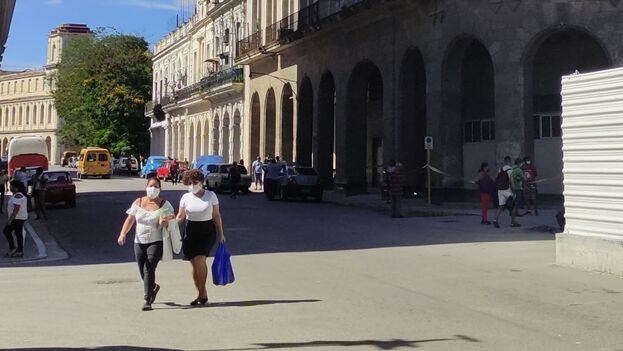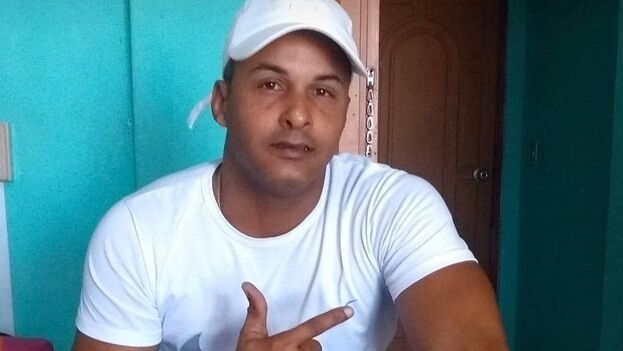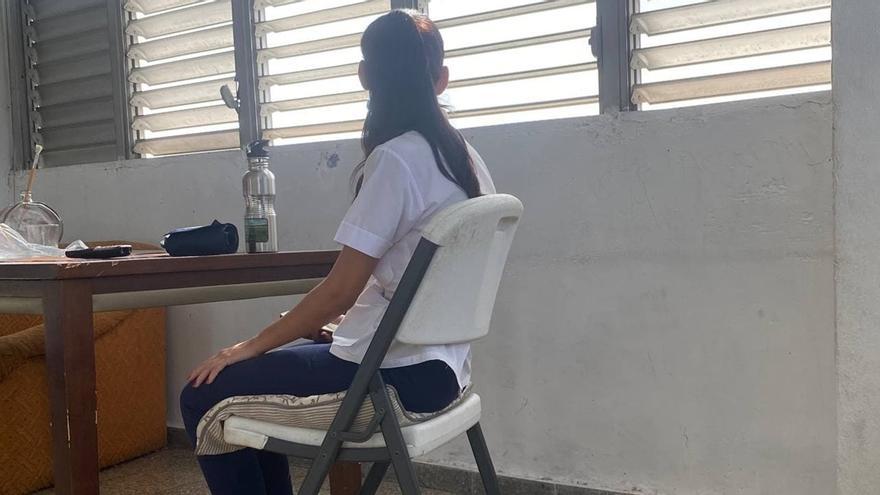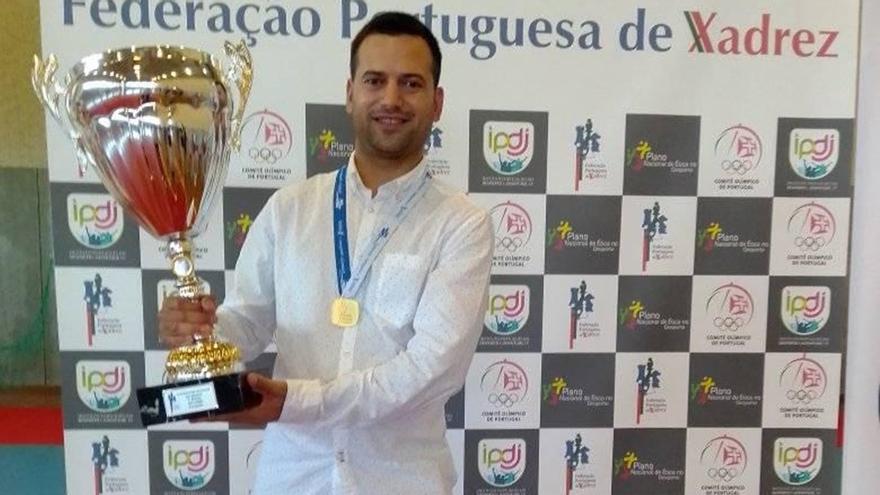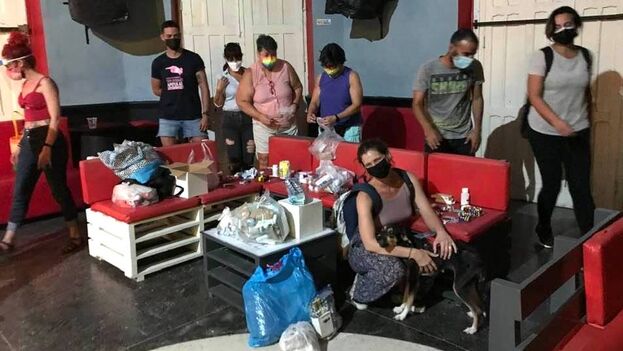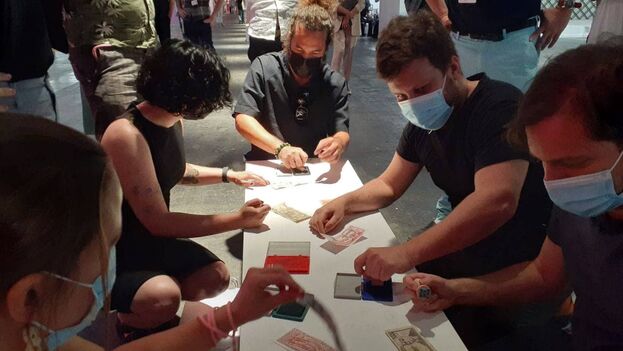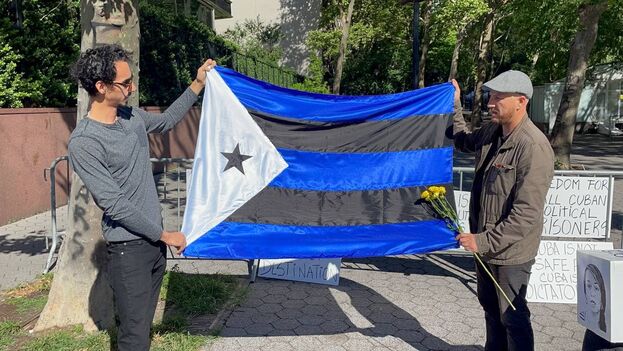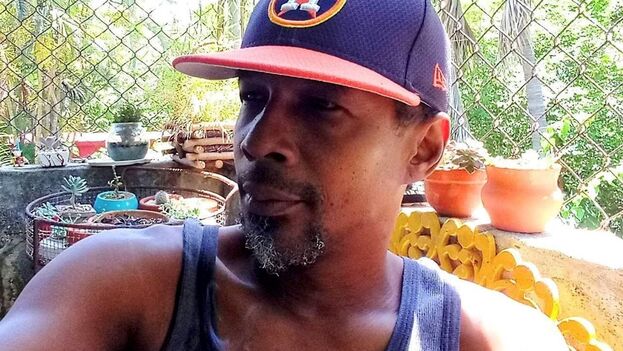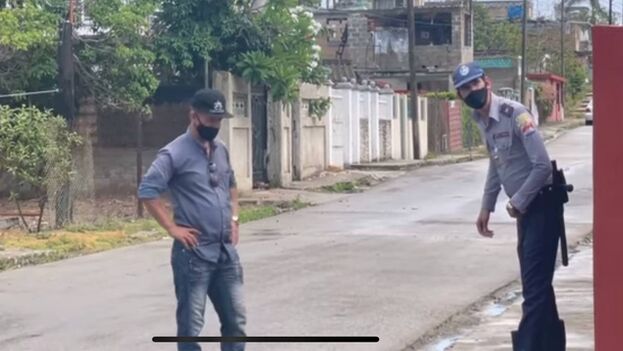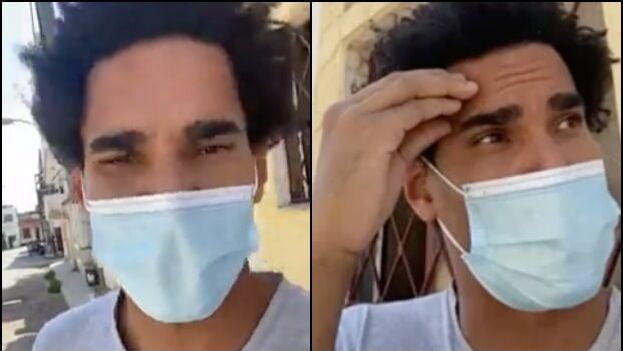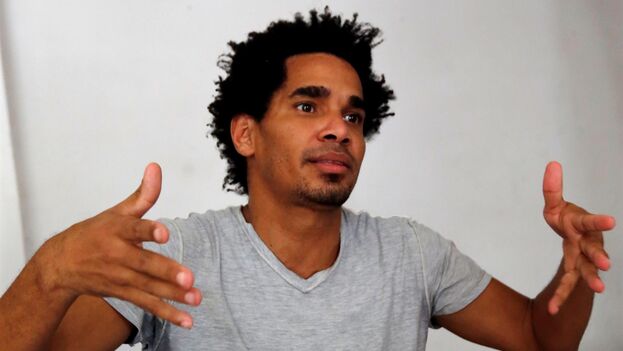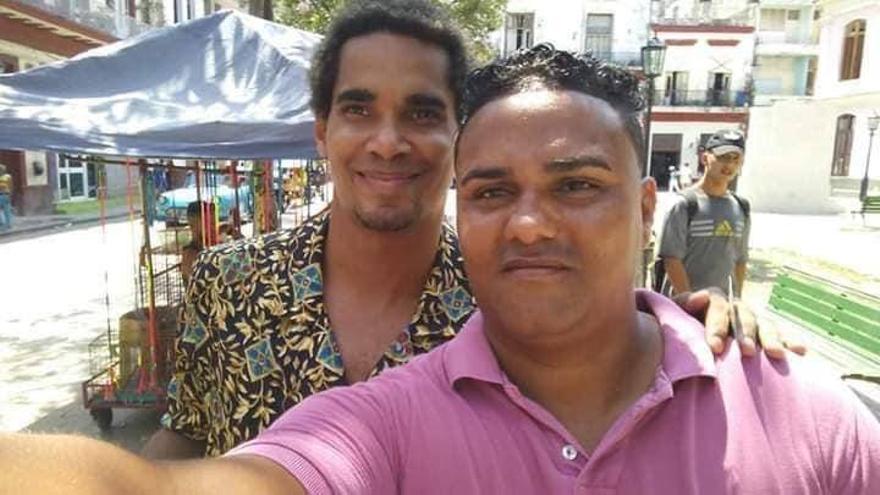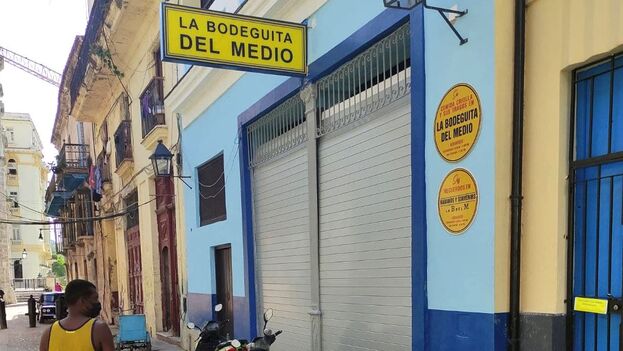
![]() 14ymedio, Luz Escobar, Havana, August 10, 2021 — Luis Robles Elizastigui, the “young man with the sign” arrested on December 4 during a protest on San Rafael Boulevard in Havana, spent 15 days in a punishment cell in the Combinado del Este prison. This was reported to 14ymedio by his brother, Landy Fernández Elizastigui, who managed to speak with him after a month without receiving any news.
14ymedio, Luz Escobar, Havana, August 10, 2021 — Luis Robles Elizastigui, the “young man with the sign” arrested on December 4 during a protest on San Rafael Boulevard in Havana, spent 15 days in a punishment cell in the Combinado del Este prison. This was reported to 14ymedio by his brother, Landy Fernández Elizastigui, who managed to speak with him after a month without receiving any news.
During the call, which this newspaper had audio access to, Luis Robles explained to his brother the reason why he was locked up in the punishment cell: they found some photos which, Fernández told 14ymedio, were “some images of the campaigns that have been carried out calling for freedom.”
In any case, Robles assured his brother that he is “calm.” “I’m a little weak because I lost some blood, and my blood pressure got out of control,” he says, but until today what he has done “is rest” to see if his body will recover.
He also mentioned that he was seen by a doctor, who told him continue reading
Luis Robles has been threatened in prison. “It’s difficult, a very difficult time. They’ve threatened to put you in jail,” he explained to his brother.
Landy Fernández had previously told this newspaper that the lawyer had received a fourth denial of his request to change the precautionary measure to allow Robles to await trial at his home.
“The lawyer showed me the latest application that he presented on August 2, based on the words of the President of the Supreme Court who said in a press conference on July 24 that ’thinking differently, questioning what the process is doing, or demonstrating, constitutes a crime,’” he said.
Considered a political prisoner, Robles is in prison awaiting trial for protesting peacefully last December 4, calling for the release of rapper Denis Solís and an end to repression in Cuba.
Robles, 28, doesn’t belong to any opposition group, but he is suffering in his own body what it means to be a political prisoner in a Cuban jail for exercising his right to protest. His brother reported that in May he had received mistreatment and punishment that caused a skin allergy that triggered severe wounds.
During their Sunday conversation, Robles and his brother also spoke about the family: “My mother is very worried about the whole situation of my father and yours,” Fernández told him, referring to his father, who was sick with Covid.
At the end of July, a Facebook page created with the activist’s name to demand his freedom, published a video in which Luis Robles talks about his thoughts, his wishes, and also the reasons that led him to be a protestor. The material was recorded on December 1, three days before he was arrested by the police and accused of “enemy propaganda” and “resistance.”
Seven months after Robles was arrested for expressing himself with a sign in the streets of Havana, thousands of Cubans took to the streets and plazas of more than 40 cities throughout the island demanding freedom, the resignation of Miguel Díaz-Canel, and the end of the regime. Hundreds of them remain in detention and are being prosecuted for alleged crimes of public disorder, contempt, or transmission of epidemics.
Translated by Tomás A.
____________
COLLABORATE WITH OUR WORK: The 14ymedio team is committed to practicing serious journalism that reflects Cuba’s reality in all its depth. Thank you for joining us on this long journey. We invite you to continue supporting us by becoming a member of 14ymedio now. Together we can continue transforming journalism in Cuba.

